Caregiving resources to know

Overwhelmed? Here are 7 web resources to help you find your footing
Whether you've been suddenly thrust into the role of caregiver or you're old hand, chances are you've felt lost at some point. And even though you may feel like it sometimes, you're not alone.
Sure, there are tons of resources on the internet (like this one, to start). And a web search for "caregiver" whips back 1.3 million results in a fraction of a second. But where do you even start? And whom can you trust?
We're here to help you cut the clutter to find sources that are both helpful and objective. Here are seven that are worth checking out.
1. National Institute on Aging (NIA)
What it is: Part of the U.S. government-backed National Institutes on Health, the NIA helps make public science-based information on health, aging and Alzheimer’s. The org offers lots of reliable, free health information and publications.
There's a section specifically for caregivers with tips on challenges like assessing the care your loved one needs, long distance caregiving and advance planning. While basic, it's a great introduction to what you’ll need to know.
Pro tip: Most states have their own departments on aging. There you can find local resources like home care agencies, geriatric care managers and community-based services. They're also a good source of up-to-date info on legislation. One such treasure trove is the Minnesota Board on Aging.
2. SeniorLinkAge Line
What it is: A free telephone and information service sponsored in part by the Minnesota Board on Aging, the SeniorLinkAge Line can connect you directly with a local aging expert to answer any questions you might have.
Among areas covered: Medicare options; care transitions, such as those from a skilled nursing facility home; and assistance with forms and applications for services like Food Support or Medicaid. Call 1-800-333-2433 or use the online search engine to find the help you need.
Pro tip: There tends to be a long hold time, so get yourself a cup of coffee and settle in. Or start doing your research online and follow up with a phone call.
3. Caregiver Action Network (CAN)
What it is: CAN is a nonprofit focused on improving the quality of life for family caregivers. The organization offers education, peer support and resources to caregivers all free of charge.
You’ll find instructional videos demonstrating how to better care for a loved one as well as moderated forums where you can share experiences and gain insight in a safe and knowledgeable environment.
There are also separate sites for caregivers of family members with cancer, Alzheimer’s and rare diseases to help address condition-specific caregiving scenarios.
Pro tip: From the homepage you can choose whether you're a first-time, longtime, working or long distance caregiver to better tailor the info you receive.
4. Family Caregiver Alliance (FCA)
What it is: Family Caregiver Alliance was founded in the late 1970s by two women in the San Francisco bay area who were caring for their spouses and couldn't find any resources nearby.
Since then, this grassroots community-based nonprofit has played a role in the establishment of a national movement to acknowledge the huge contribution by family caregivers in the long-term healthcare of the ill and elderly in the U.S.
No longer specific to California, the FCA offers a national state-by-state guide to local resources, online support groups, health condition fact sheets, tips, webinars and videos. For Bay Area locals there are also free in-person workshops and retreats.
Pro tip: Use the Family Care Navigator to locate everything from services and policies for family caregivers to government assistance programs and legal help in your state.
5. Aging Life Care
What it is: Originally the National Association of Professional Geriatric Care managers, the Aging Life Care site is now geared for caregivers themselves rather than professionals. Here, you’ll find lots of information and advice from professional care managers, social workers, legal advisors and assisted living counselors.
Pro tip: The site also features a powerful search tool that can help you find a geriatric care manager or other expert near you.
6. Alzheimer’s Association
What it is: Founded in 1980, the Alzheimer’s Association is the leading voluntary health organization in Alzheimer’s care, research and support. It can help caregivers recognize the signs of the disease and understand the stages.
The site is a wellspring of practical tips for specific scenarios, like travel or family gathering. And it's a helpful avenue for finding local support, including volunteer resources.
Pro tip: Not just for Alzheimer's, the association offers resources and strategies that are helpful for dealing with all types of dementia.
7. Social networking
What it is: Online support groups, forums and social media can be a great timesaver. They can help you zero in on specific challenges or conditions. Experts tend to agree that often one of the best resources for family caregivers are other caregivers, so finding others who can share experiences, tips and strategies is invaluable.
But just like with expert resources, make sure you know where the information is coming from.
Pro tip: In order to be sure the advice you receive is safe, accurate and reliable, opt for forums connected with a trusted nonprofit that moderates their message boards. Same holds true for Facebook groups, which should be closed, monitored and associated with a trusted nonprofit, hospital or university.
I'm also dealing with...

Smart questions to ask when researching online
- Is it accurate? Check the site's sources, and cross reference different sites to see if they give the same info.
- Is it authoritative? Look for .org or .gov sites first. Consider the credentials of the author or reviewer.
- Who pays for it? Be suspicious of any company that stands to profit from the information being provided, even if you like the product.
- When was it written? Three years is a good benchmark.
Community
Did you know that there are local agencies in every community to help you find the services you need?
Use the search feature, then input your zip code to find local help.
Two popular areas of need for caregivers:
More helpful links:
- Eldercare Locator www.eldercare.gov
- The National Clearinghouse for Long-term Care Information www.longtermcare.gov
- Medicare www.medicare.gov
- Social Security Administration www.socialsecurity.gov
- Veterans Administration www.caregiver.va.gov

